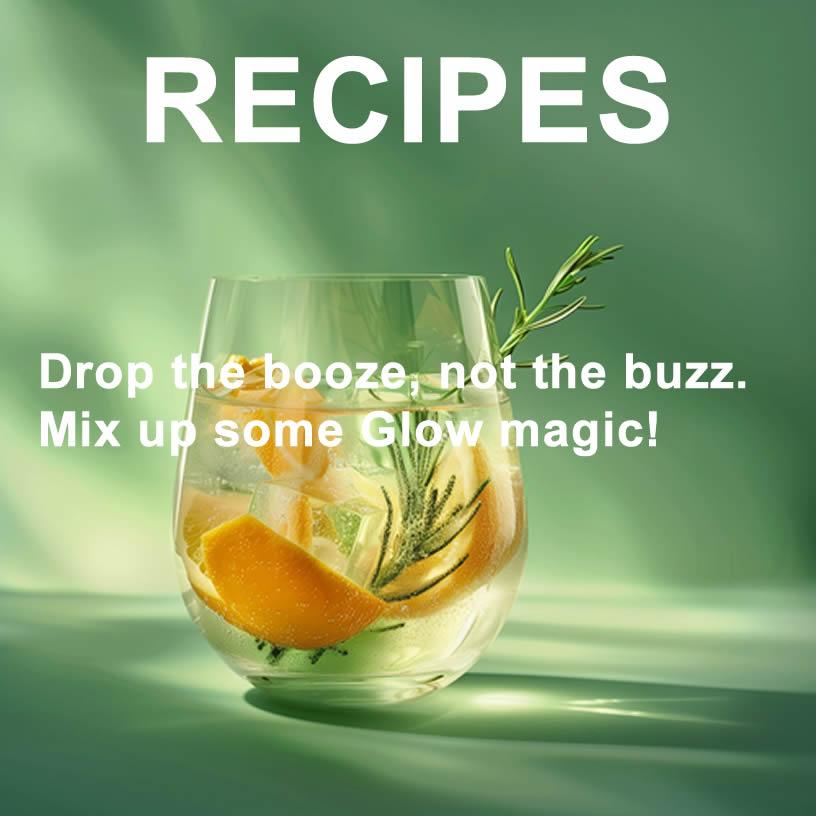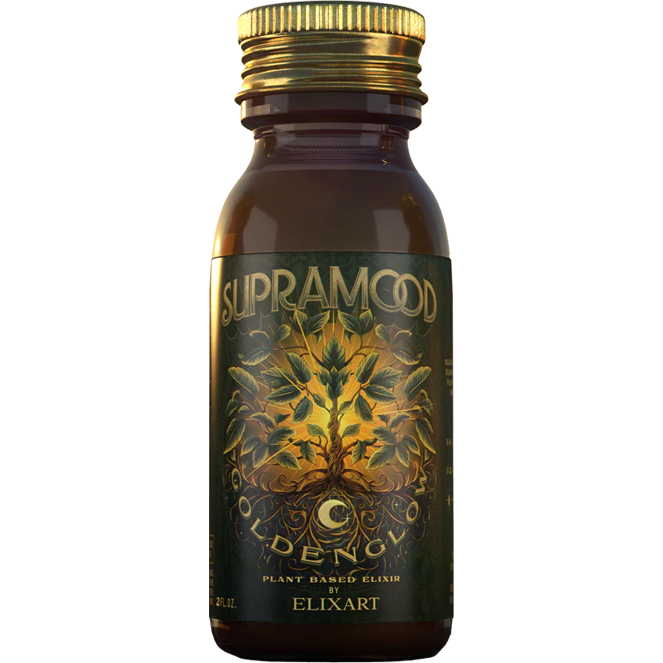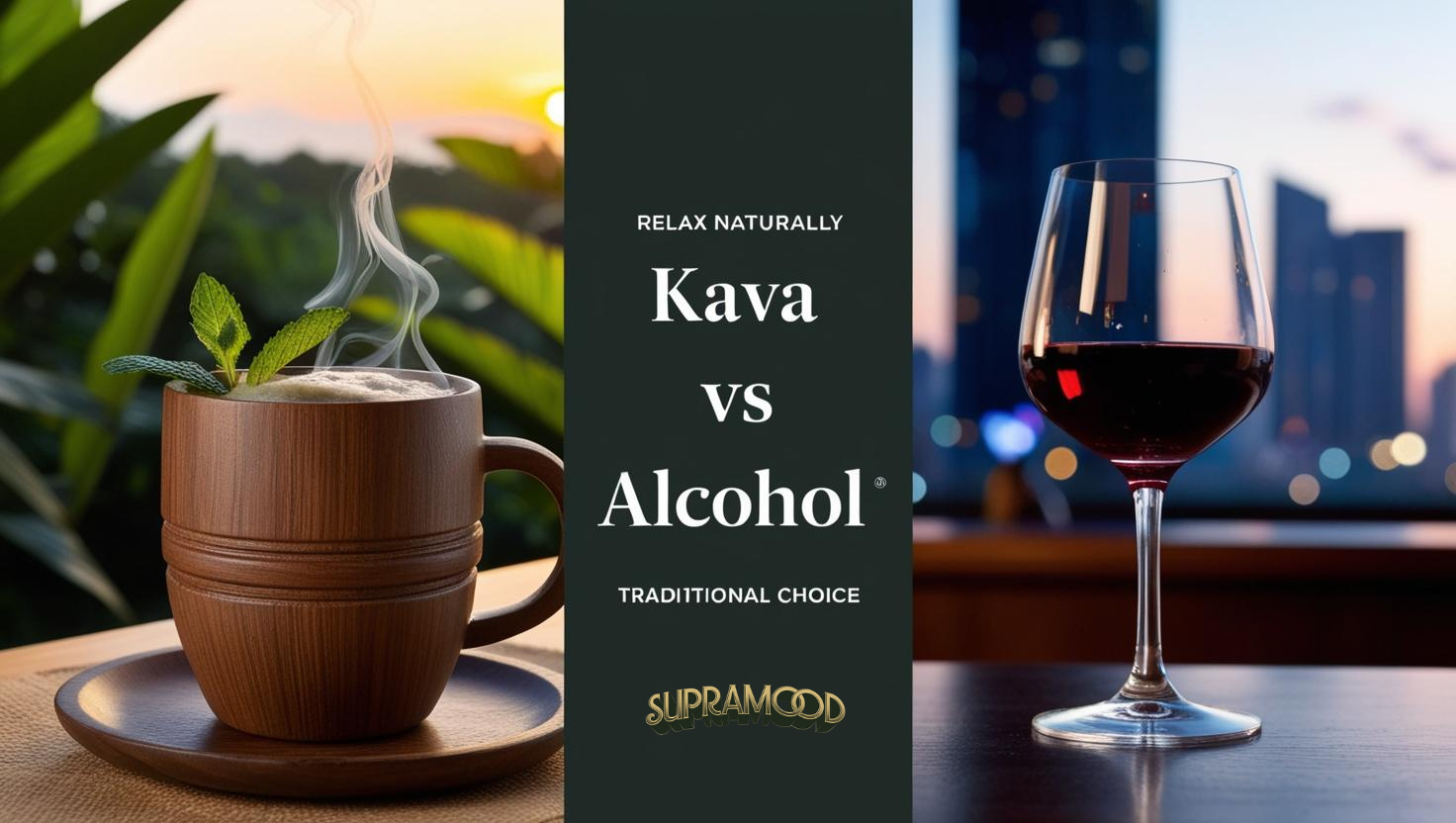Table of Contents
- Introduction
- Does Kava Show Up on a Drug Test?
- Is Kava Considered a Drug?
- Does Kava Get You Stoned?
- What Drug Is Kava Most Similar To?
- How to Pass a Swab Drug Test for Meth (Bonus Section)
- Conclusion & Final Thoughts
- FAQs
Introduction
Picture this: You just had a relaxing evening sipping some kava tea, feeling relaxed, calm, and clear-headed. Then it hits you...
“Oh no. I’ve got a drug test tomorrow. Am I screwed?”
Sound familiar? You’re not the only one asking, “Does kava show up on a drug test?” It’s one of the internet’s most searched questions about this peace-inducing root from the South Pacific. And for good reason. Whether you're a sports athlete who has a drug test the next morning or you’re preparing for a new job, maybe facing a military screening, or just trying to stay on the safe side, what goes into your body matters.
So let’s cut through the confusion.
In this concise and to-the-point guide, we’re going to unpack:
- Whether kava triggers positive drug test results (spoiler: it usually doesn’t, but we’ll explain why)
- If it can make you feel "stoned" or intoxicated
- How kava compares to substances like alcohol, weed, CBD, and Xanax
- And for those who need it we’ve thrown in a bonus section on how to pass a mouth swab test for meth (because let’s face it, that’s a whole different level of stress)
But first, here’s what you’ll walk away with today:
Key Takeaways:
- Kava is completely legal in the U.S, the UK, Australia, and most of Europe.
- kava isn’t treated like a controlled or illegal drug in most parts of the world.
- Some substances or medications can impair you like alcohol or THC, affecting judgment, coordination, and reaction time.
- Kava is most similar to anti-anxiety drugs like benzodiazepines, as it has calming, sedative effects on the nervous system without causing strong euphoria.
- Protect yourself from unexpected drug test results
Does Kava Show Up on a Drug Test?
Alright, let’s get right to the question that brought you here. You’ve had some kava, maybe from a bar, a supplement shop, or a relaxing night at home, and now there’s a drug test looming. You’re probably thinking, “Wait... is that going to show up?”
Let’s breathe for a second. Because here’s the truth: if you're about to take a standard drug test, whether it's for a new job, a routine screening, or a surprise test at work, kava isn’t something you need to panic about.
Let me walk you through why.
Standard Drug Tests (5-Panel, 12-Panel)
Most employers and testing facilities rely on what's called a 5-panel or 12-panel drug test. These are the bread-and-butter tests used across the U.S-cheap, quick, and designed to catch the most common substances that impair judgment or performance.
Here’s what the 5-panel test looks for:
- THC (from marijuana)
- Cocaine
- Opiates (like heroin or morphine)
- Amphetamines (think Adderall or methamphetamine)
- PCP (phencyclidine)
Now, if the employer or institution wants to dig a little deeper, they might spring for a 12-panel test, which adds:
- Benzodiazepines (like Xanax or Valium)
- Barbiturates
- Methadone
- MDMA (Ecstasy)
- Propoxyphene (a painkiller you don’t see often anymore)
- Oxycodone (like OxyContin or Percocet)
Notice what’s missing? Kava.
That’s right, kava and its active ingredients, known as kavalactones, are not on either of those lists. Why? Because chemically, they don’t behave like controlled substances. Kavalactones don’t break down into anything resembling opioids, amphetamines, cannabinoids, or any other restricted compound a drug test would normally hunt for.
So unless you’ve mixed your kava with something else... you’re in the clear.
Military Drug Tests
Now, let’s talk about a stricter environment, the military. If you're in the armed forces or planning to enlist, the stakes are higher, right? These tests are designed not just to spot illegal use, but also to ensure peak performance, safety, and readiness.
The Department of Defense does use more advanced and sensitive screenings, but even then, kava is not a standard target.
So here’s the scoop:
- You won’t test positive on a military drug test just for drinking kava.
- But... some branches do discourage its use because of its sedative or relaxing effects, especially when mixed with medications, alcohol, or other central nervous system depressants.
- If leadership thinks your performance is impaired and suspects kava as a factor? That’s the only time you might be tested for it, and even then, it would have to be a specifically ordered test for kavalactones.
Bottom line: military labs don’t go looking for kava unless there’s a good reason.
Specialized Kava Testing
Now, in very rare and highly specific situations, think legal investigations, insurance claims, or workplace incidents, a lab might conduct a specialized toxicology screening for kava.
But here’s the thing: those tests are not cheap, they’re not quick, and they have to be specifically requested. Most employers? They’re not going there. They’re more concerned with substances that impair safety, judgment, and decision-making on a large scale, especially ones that are addictive or illegal.
So unless you’re:
- Involved in an accident at work,
- Under legal scrutiny, or
- Specifically being monitored for kava,
- The odds of you getting tested for it are slim to none.
TL;DR (But Said Out Loud)
So, if someone just asked you point blank,
“Will Kava show up on a drug test?”
You can confidently say:
“Nope-not on a standard one.”
Whether it’s a 5-panel test, a 12-panel test, or even most military screenings, kava flies under the radar because it’s not chemically close to any drug of abuse. Only a highly specialized test would find it, and let’s be real, 99% of employers don’t go down that road.
Is Kava Considered a Drug?
Alright, let’s clear the air. Is kava a drug?
Well… kind of, but not in the way you might think.
Legal Status
First off, here’s the good news: Kava is completely legal in the U.S., the UK, Australia, and most of Europe. You don’t need a prescription, and you’re not breaking any laws if you buy it online or grab it from a health store.
Some places, like Germany and Canada, did get cautious in the past; they put temporary bans in place because of concerns around liver health. But thanks to updated research, those restrictions have mostly eased up.
So, no, kava isn’t treated like a controlled or illegal drug in most parts of the world.
Psychoactive Effects
Now, here’s where it gets interesting: Kava is psychoactive, which just means it affects your brain.
But don’t worry, it’s not trippy or mind-altering like weed or LSD. Think of it more like a natural chill pill. The active compounds in kava called kavalactones- work on the same brain receptors that alcohol and anti-anxiety meds like Xanax do.
What does that feel like? A wave of calm. Relaxed muscles. A quieter mind. No buzz. No hangover. Just… mellow.
Does Kava Get You Stoned?
Alright, let’s bust one of the biggest myths right off the bat, no, kava will not get you stoned.
You’re not going to be staring at the ceiling, giggling at your hand, or having a deep conversation with your cat. That’s just not how kava works.
Effects Compared to Alcohol & THC
So what does it feel like?
Imagine you’re sipping on a glass of wine after a long day. Your shoulders relax, your mind quiets down, maybe there’s a soft wave of contentment that washes over you. That’s kava, minus the wine, minus the alcohol, and definitely minus the hangover.
You might feel:
- A little light, a little happy
- Calm and centered
- Looser in the muscles, like you just finished a yoga session
Now, compare that to THC, which can mess with your perception, spike anxiety, or just make you feel plain weird. Kava doesn’t do that. It doesn’t impair your thinking, twist your reality, or send you into another dimension.
Is It Intoxicating?
Technically speaking, kava does have an effect on your brain, but calling it “intoxicating” would be a stretch. You’re still you. Just a calmer, more relaxed version.
You’re alert. You can carry on a conversation, drive (though be cautious), or go about your evening without feeling off-balance. That’s why so many people reach for kava instead of alcohol or prescription anti-anxiety meds, it chills you out without shutting your brain down.
Think of it as nature’s way of saying, “Hey, take it easy, but stay sharp.
What Drug Is Kava Most Similar To?
Kava sits in a unique spot between supplements and medications. If we had to compare, it’s most similar to:
Benzodiazepines (e.g., Xanax, Valium)
- These drugs are prescribed for anxiety and stress.
- Kava offers similar calming effects but is not addictive and doesn’t impair cognitive function.
Alcohol and Kava
- Kava relaxes muscles and eases tension.
- When it comes to Kava vs Alcohol, Kava, Unlike alcohol, it doesn’t lead to aggression or hangovers.
CBD (Cannabidiol)and Kava
- CBD and kava both reduce anxiety.
- Neither produces a strong "high" but offers subtle mood improvements.
So, while kava may feel familiar, it's generally safer and gentler than most pharmaceuticals or recreational substances.
Conclusion & Final Thoughts
So, bottom line, does Kava show up on a drug test?
Unless you’re in a super rare, highly specific situation, nope. Standard drug tests, whether it’s the 5-panel, 12-panel, or even military screenings, aren’t looking for kava. Why? Because it’s not a controlled substance, and it simply doesn’t fall into the same category as the usual suspects.
Yes, kava is psychoactive, but let’s be clear: it won’t get you high or stoned. What it gives you is a smooth sense of calm, a clearer head, maybe a little feel-good boost. Think: relaxed but still in the driver’s seat. It’s way closer to sipping chamomile tea or enjoying a mellow glass of wine than anything you’d find in a dispensary.
So if you’re using kava to unwind after work, ease a bit of stress, or just take the edge off, you’re in the clear. No alarms, no red flags, no awkward HR conversations.
Just one simple rule: use it responsibly, and enjoy the calm.
FAQs
How long after drinking kava can I take a drug test?
You can take it the next day; kava won’t show up on standard drug panels.
Can I drink kava the night before a drug test?
Yes, it won't interfere with common screenings.
Is kava legal in the military?
It’s not banned, but some branches discourage its use due to its sedative effects.
Does Kava show up on a probation drug test?
Unlikely, unless it’s a highly specialized test ordered for specific reasons.
Does kava affect drug test results for other substances?
No, it doesn’t cause false positives for other drugs.
Is Kava safe to take before a job interview or a drug test?
Yes, unless you’re told otherwise by the employer.
How does kava compare to kratom in drug tests?
Kratom may appear in specialized tests; kava generally does not.
Does kava show up on a saliva drug test?
Again, no. Saliva tests don’t look for kava unless specially instructed.






Leave a comment
All comments are moderated before being published.
This site is protected by hCaptcha and the hCaptcha Privacy Policy and Terms of Service apply.